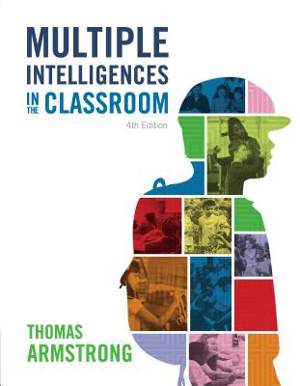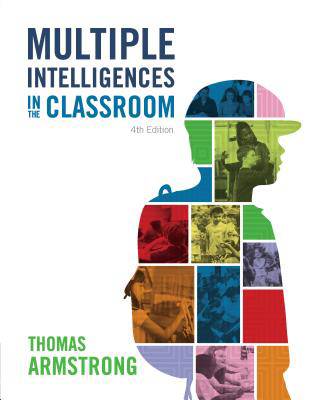
Door een staking bij bpost kan je online bestelling op dit moment iets langer onderweg zijn dan voorzien. Dringend iets nodig? Onze winkels ontvangen jou met open armen!
- Afhalen na 1 uur in een winkel met voorraad
- Gratis thuislevering in België vanaf € 30
- Ruim aanbod met 7 miljoen producten
Door een staking bij bpost kan je online bestelling op dit moment iets langer onderweg zijn dan voorzien. Dringend iets nodig? Onze winkels ontvangen jou met open armen!
- Afhalen na 1 uur in een winkel met voorraad
- Gratis thuislevering in België vanaf € 30
- Ruim aanbod met 7 miljoen producten
Zoeken
€ 41,95
+ 83 punten
Omschrijving
In the decades since it was first introduced, Howard Gardner's multiple intelligences (MI) theory has transformed how people think about learning the world over. Educators using the theory have achieved remarkable success in helping all students, including those who learn in nontraditional ways, to navigate school (and life outside it) with confidence and success. Within the context of classroom instruction, no author besides Gardner has done more to popularize MI theory than Thomas Armstrong, whose best seller Multiple Intelligences in the Classroom has become a bona fide education classic in its own right. This expanded fourth edition provides educators at all levels with everything they need to apply MI theory to curriculum development, lesson planning, assessment, special education, cognitive skills, career development, educational policy, and more. In addition to the many strategies, templates, and examples that have made Armstrong's book so enduringly popular, this edition is updated to examine how emerging neurodiversity research, trends toward greater instructional personalization, and rapidly evolving virtual learning tools have affected the use of MI theory to enhance student achievement. It also includes brand-new lesson plans aligned to nationwide standards and a revised list of resources for further study.
Specificaties
Betrokkenen
- Auteur(s):
- Uitgeverij:
Inhoud
- Aantal bladzijden:
- 243
- Taal:
- Engels
Eigenschappen
- Productcode (EAN):
- 9781416625094
- Verschijningsdatum:
- 22/11/2017
- Uitvoering:
- Paperback
- Formaat:
- Trade paperback (VS)
- Afmetingen:
- 175 mm x 226 mm
- Gewicht:
- 362 g

Alleen bij Standaard Boekhandel
+ 83 punten op je klantenkaart van Standaard Boekhandel
Beoordelingen
We publiceren alleen reviews die voldoen aan de voorwaarden voor reviews. Bekijk onze voorwaarden voor reviews.











